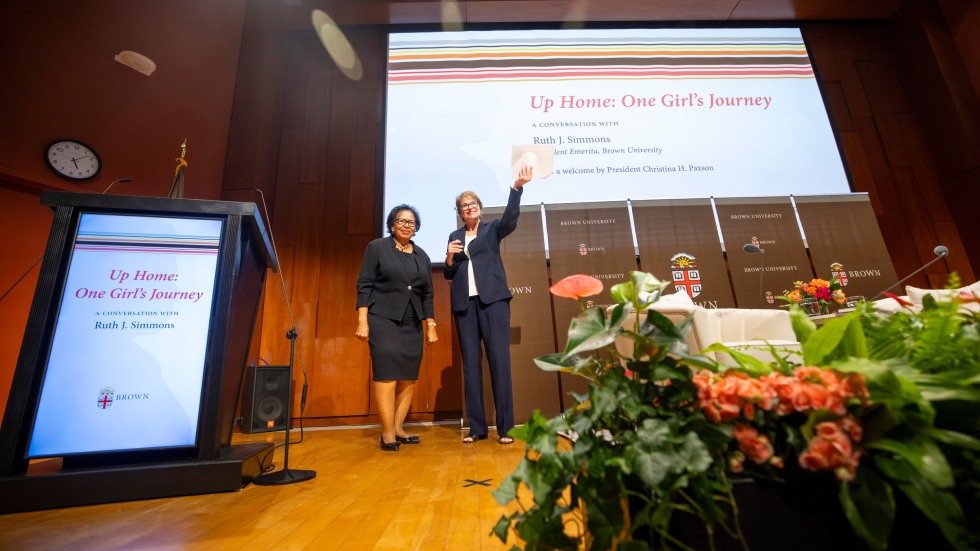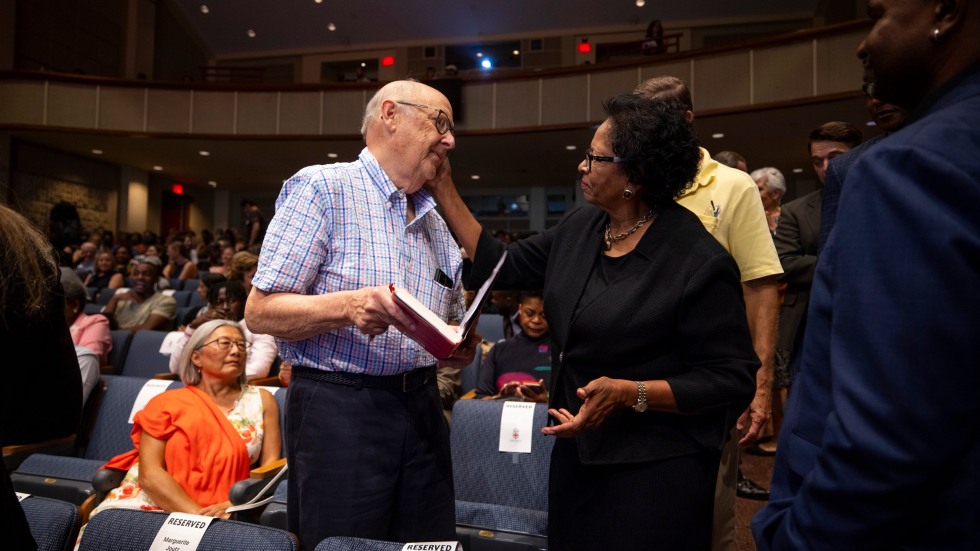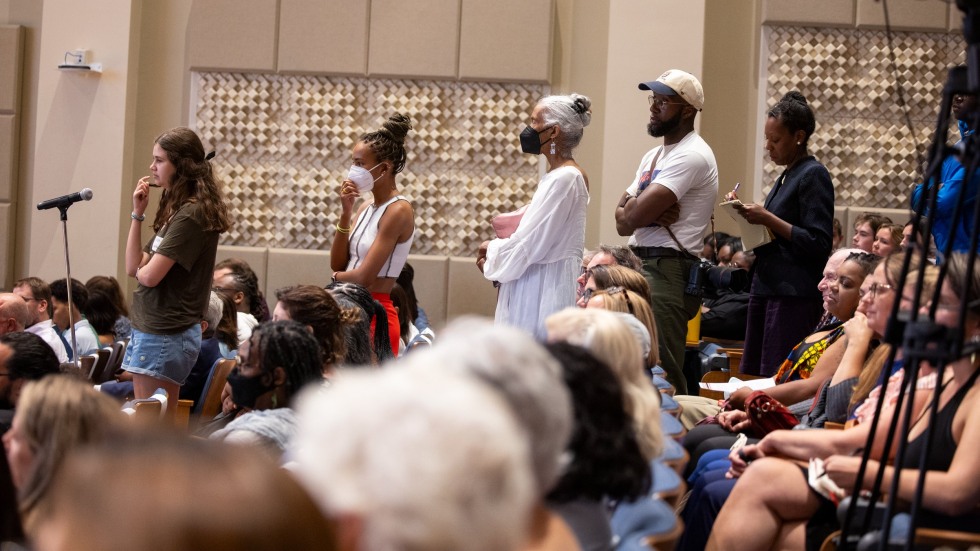PROVIDENCE, R.I. [Brown University] — Before Ruth J. Simmons became the first Black president of an Ivy League university, she was Ruth Jean Stubblefield of tiny Daly, Texas, the 12th child of sharecroppers who toiled in cotton fields for meager pay.
Born in 1945, Simmons lived with her family in a clapboard shack with a corrugated roof and no plumbing. She drank water from a bucket and bathed once a week in a tin tub. She wore crudely sewn clothes made from used flour sacks. She read no books and watched no television. Often, she barely had enough food to eat.
At the time, Simmons said, “I was following a path created for me by others” — one that was likely to lead to minimal formal education, decades of physical labor and little exposure to the world beyond Daly.
Until, that is, she started first grade and suddenly saw myriad possible futures.
“I walked into my very first classroom, and [the teacher] treated me as if I was not the country bumpkin that I actually was, but someone with immense potential,” Simmons said. “She had this quality in her voice that suggested that it was absolutely true. Imagine what that does when you are the youngest of 12 and everyone in the household thinks you’re a burden.”
Decades later, Simmons — who helmed Brown from 2001 to 2012 and served also as president of Smith College in Massachusetts and Prairie View A&M University in Texas — still believes that her inspiring first-grade teacher deserves much of the credit for her unprecedented success. And she’s telling the world via her new memoir, “Up Home: One Girl’s Journey.” The book details Simmons’ hardscrabble early childhood in East Texas farmlands, her adolescent and teen years in Houston’s predominantly Black Fifth Ward, and her journey to Dillard University, a historically Black institution in New Orleans.


